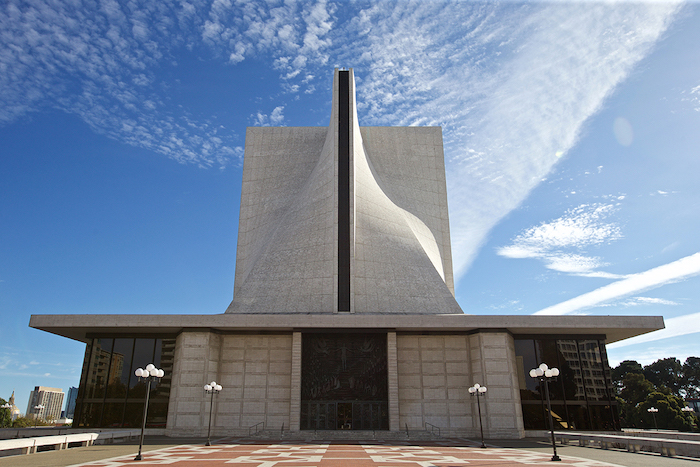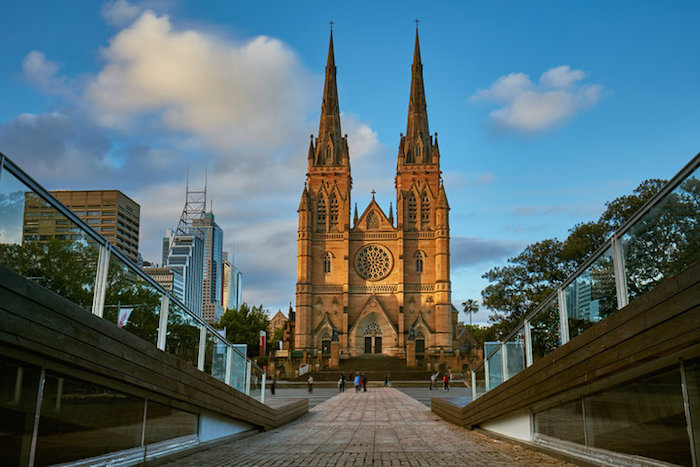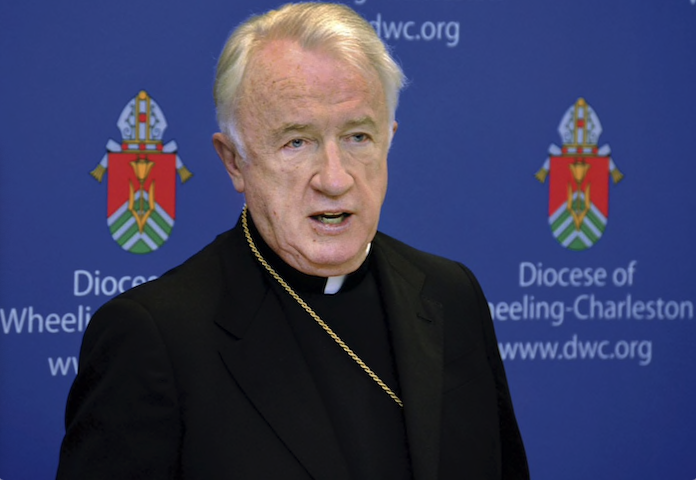
In the years before he was ousted for alleged sexual harassment and financial abuses, the leader of the Catholic Church in West Virginia gave cash gifts totaling $350,000 to fellow clergymen, including young priests he is accused of mistreating and more than a dozen cardinals in the United States and at the Vatican, according to church records obtained by The Washington Post.
Bishop Michael J. Bransfield wrote the checks from his personal account over more than a decade, and the West Virginia diocese reimbursed him by boosting his compensation to cover the value of the gifts, the records show. As a tax-exempt nonprofit, the diocese must use its money only for charitable purposes.
The gifts — one as large as $15,000 — were detailed in a draft of a confidential report to the Vatican about the alleged misconduct that led to Bransfield’s resignation in September. The names of 11 powerful clerics who received checks were edited out of the final report at the request of the archbishop overseeing the investigation, William Lori of Baltimore.
Lori’s name was among those cut. He received a total of $10,500, records show.
The Post obtained both versions of the report, along with numerous emails and financial records.
On Wednesday, in response to inquiries from The Post, Lori said he is returning money he received from Bransfield, and asking that it be donated to Catholic Charities, “in light of what I have come to learn of Bishop Bransfield’s handling of diocesan finances.”
He acknowledged that the names of senior clerics were cut from the final report. “Including them could inadvertently and/or unfairly suggest that in receiving gifts for anniversaries or holidays there were expectations for reciprocity,” Lori wrote. “No evidence was found to suggest this.”
The investigation was launched by the Vatican last fall after clerics in West Virginia raised concerns about Bransfield’s behavior. Five lay investigators concluded that the cash gifts were part of a broader pattern of abuse of power by the bishop, including harassing young priests and spending church money on personal indulgences.
“Bishop Bransfield adopted an extravagant and lavish lifestyle that was in stark contrast to the faithful he served and was for his own personal benefit,” they wrote in the final report.
During his 13 years as bishop in West Virginia, one of the poorest states in the nation, Bransfield spent $2.4 million in church money on travel, much of it personal, which included flying in chartered jets and staying in luxury hotels, according to the report. Bransfield and several subordinates spent an average of nearly $1,000 a month on alcohol, it says. The West Virginia diocese paid $4.6 million to renovate Bransfield’s church residence after a fire damaged a single bathroom. When Bransfield was in the chancery, an administrative building, fresh flowers were delivered daily, at a cost of about $100 a day — almost $182,000 in all.
Bransfield, 75, drew on a source of revenue that many parishioners knew little about, oil-rich land in Texas donated to the diocese more than a century ago. He spoke of church money as if it were his to spend without restriction, according to the report.
“I own this,” he is quoted as saying on many occasions.
In an interview with The Post, Bransfield disputed the allegations, saying “none of it is true,” but declined to go into detail because attorneys had advised him not to comment. One of his attorneys said Lori has not responded to Bransfield’s request for a copy of the report.
“Everybody’s trying to destroy my reputation,” Bransfield said by phone without elaborating. “These people are terrible to me.”
According to the report, he spoke with investigators in February and “emphatically denied engaging in any sexual harassment or sexual activity with any priest or seminarian, either verbally or suggestively by his conduct.” The report does not include responses from Bransfield to many of the spending allegations, but he told investigators that aides oversaw the renovations at his residence and that back problems left him unable to fly in economy class.
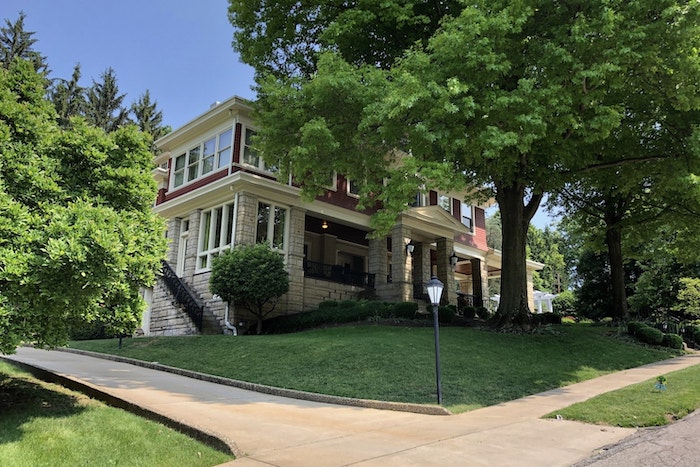
Lori told members of the diocese in a statement Wednesday that he received permission “as of today” to sell the bishop’s residence in Wheeling and use the proceeds to support victims and survivors of sexual abuse.
Just hours after The Post’s inquiries, the statement also addressed the gifts he received from Bransfield. “In the spirit of full disclosure I feel it necessary to acknowledge that I was periodically a recipient of financial gifts in varying amounts by Bishop Bransfield,” Lori wrote.
The documents obtained by The Post provide a rare inside look at the finances of one diocese at a time when Catholic leaders, buffeted by criticism over their handling of clergy sex-abuse cases, have pledged to reform a church hierarchy that gives virtually unchecked power to bishops and cardinals. The records also offer the deepest insight yet into the circumstances surrounding Bransfield’s resignation in September — when church authorities announced an investigation into unspecified sexual harassment allegations — and his subsequent suspension from ministry in March.
Bransfield wrote at least 565 checks that were recorded as “gifts” and made out to the clerics by name. The documents obtained by The Post do not make clear why Bransfield gave the gifts, though the recipients of the largest amounts were among the most influential members of the Catholic Church, clerics whose opinions carry weight with the Vatican.
Among them was Cardinal Donald Wuerl, who recently retired as Washington’s archbishop; Cardinal Tim Dolan of New York; Cardinal Raymond Burke, an American who sits on the Vatican Supreme Court, and Archbishop Carlo Vigano, a former Vatican ambassador to the United States known for his calls for more accountability. Cardinal Kevin Farrell, a high-ranking Vatican official who served for years in the District, received two checks totaling $29,000 for expenses related to an apartment in Rome, documents show.
The report does not comment on the propriety of accepting such gifts.
The gifts came as a succession of younger male clerical assistants complained to church officials in West Virginia that Bransfield was sexually harassing them. Similar concerns were raised about Bransfield’s conduct in Philadelphia, where he taught at a Catholic high school, and in the District of Columbia, where he was head of the Basilica of the National Shrine of the Immaculate Conception from 1990 to 2005, the report says.
At least six of Bransfield’s clerical assistants in the Diocese of Wheeling-Charleston “were broken by the experience,” Vicar for Clergy Anthony Cincinnati told investigators. Seminarians or young priests appealed to leaders in the diocese, to no avail, the report says. They were instructed to “make your boundaries clear,” it says, or told that they had no choice but to join Bransfield in such activities as sleepovers at his residence and on trips.
“Your presence is required,” the report quotes another of Bransfield’s top aides, the Judicial Vicar Rev. Kevin Quirk, telling a young priest.
In a statement, a spokesman for Wuerl said the cardinal had “received honoraria for speaking invitations in the Diocese of Wheeling and other commemorative events, as well as modest gifts to mark personal celebrations, such as an ordination anniversary.”
A Vatican spokesman confirmed that Farrell received “voluntary donations” from Bransfield and others for the renovation of his apartment in the Vatican and said that Bransfield “received nothing in exchange.”
“Cardinal Farrell was not aware of the accusations against Bishop Bransfield for abuses and mismanagement of the financial funds of his diocese,” the spokesman, Alessandro Gisotti, said in a statement.
Spokesmen for Dolan and Burke did not immediately respond to messages seeking comment. Nor did Vigano.
Cincinnati declined to comment.
Asked for comment on behalf of him and Quirk, a spokesman for the diocese forwarded the statement from Lori. The statement cast blame on Bransfield, claiming that the judgment of some diocesan personnel was “impacted by the culture of fear of retaliation and retribution that the former bishop fostered.”
The roots of the West Virginia diocese’s unusual wealth date back to the late 1800s, to a friendship struck on a transatlantic cruise ship between a bishop from Wheeling and a New York heiress. When she died in 1904, Sara Catherine Aloysia Tracy left the majority of her estate to the diocese, including a large tract of land in west Texas. Oil was discovered there decades later.
The income from the mineral rights generates annual revenue averaging nearly $15 million in recent years and has funded an endowment now valued at $230 million, according to financial documents. As a result, West Virginia’s parishes are largely supported by the diocese — unlike across the rest of the country, where dioceses must be supported by local parishes.
The state has 78,000 Catholics — just 4 percent of the population, among the lowest per capita in the country.
Bransfield arrived at the Wheeling-Charleston diocese in 2005. He was known to prefer an opulent lifestyle, the report says. Investigators wrote that “a reputation for a party atmosphere attached to Bransfield’s tenure” in Washington.
Three months into his time in West Virginia, documents show, Bransfield began dipping into the diocese’s fortune, sending to some clerics what would be the first of many checks.
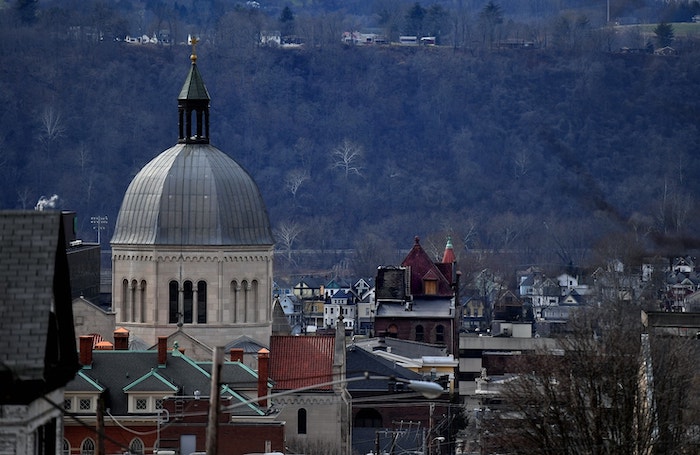
In 2006, Bransfield gave $4,800 to Cardinal Bernard Law, who had by then been ousted from Boston for his role covering up clergy sex abuse. Cardinal Edmund Szoka got $500 after retiring that year as a top Vatican administrator.
In 2011, shortly after Wuerl was elevated to cardinal in the Archdiocese of Washington, Bransfield appeared with him at a ceremony in Rome. Bransfield walked just behind Wuerl in a procession of global dignitaries, video of the event shows. Two weeks later, Bransfield wrote a check to Wuerl for $10,000.
The following year, Bransfield sent a $5,000 check to the newly appointed archbishop of Baltimore, William Lori.
The Rev. Pietro Sambi, the Vatican’s ambassador to the United States, known as the Apostolic Nuncio, received checks totaling $28,000 before his death in 2011, the draft report shows. Vigano, his successor, got checks worth $6,000, it shows.
Checks totaling $9,175 were sent to his nephew the Rev. Sean Bransfield, vice chancellor of the Philadelphia Archdiocese, financial records show. His cousin Monsignor Brian Bransfield, general-secretary of the U.S. Conference of Catholic Bishops, received $1,350, the records show.
During these years, fellow clerics elected Michael Bransfield president of the Papal Foundation, a nonprofit that distributes millions of dollars to charitable projects on the pope’s behalf. The foundation is run by U.S. cardinals, and its board included Wuerl and Theodore McCarrick, both recipients of Bransfield’s cash gifts.
Bransfield also became a regular visitor to the Vatican. In 2010, he presented a cake to Pope Benedict on the pontiff’s 83rd birthday.
Law, Sambi and Szoka are deceased.
An attorney for McCarrick said he has no immediate comment.
In separate statements, Brian and Sean Bransfield said they were unaware that Michael Bransfield had been reimbursed for the checks. “They always seemed like a typical gift from a family member,” Brian Bransfield said.
Records show that the diocese’s finance officials adopted a method to reimburse Bransfield for the checks. His compensation was increased by an amount that covered the gifts, plus the tax burden that resulted from the increased compensation, a practice known as “grossing up,” according to the report and emails among top diocesan officials. The documents do not describe who initiated the arrangement, but internal emails indicate it became common practice.
“His Excellency would like to receive a check in the amount of $500.00 prepared according to the usual gross-up method,” Quirk wrote to diocese financial officials in a 2016 email regarding a gift that Bransfield sent to Vigano’s successor as nuncio, Christophe Pierre.
In the six years before Bransfield left West Virginia, the same method was used to reimburse him $324,129 for a portion of his personal expenses — clothing, jewelry and “personal services,” the report says. Among the charges paid for by the diocese were 87 purchases totaling $61,000 from Ann Hand, a D.C. jewelry boutique specializing in patriotic items such as gold and sapphire eagles, records show. The report does not say whether the church paid for the jewelry directly or reimbursed Bransfield to cover the cost.
As Bransfield lived in opulence, seminarians and young priests who assisted him complained to church officials that he was sexually harassing them.
The report cites nine men in the Wheeling-Charleston diocese who accused Bransfield of touching or groping them, kissing or exposing himself to them or of commenting on their bodies. Diocesan leaders witnessed Bransfield’s “predatory” behavior toward altar servers, behavior troubling enough that one church leader tried to make sure no altar server was left alone with him, the report says.
The text of the report does not name the alleged victims, and it is often vague about when the incidents took place.
There were “troubling hugs” from Bransfield, the seminarians and young priests told investigators. On some of these occasions, they alleged, Bransfield appeared to be intoxicated. Others said he warned them not to “get fat.”
One said Bransfield slapped him on the buttocks at Castel Gandolfo in Italy, the summer residence of the pope. On another occasion, the alleged victim said, Bransfield summoned him into his bedroom and began kissing his neck.
Another said Bransfield let him drink alcohol before he was legally of age, exposed himself, pulled the young man against him and ran his hands over the seminarian’s genitals.
One seminarian recalled sitting on Bransfield’s lap, being kissed by the bishop and thinking: “I either do this, or I have to completely reinvent my life.” Bransfield asked him to take his pants off, but he refused, the seminarian told investigators. The seminarian later suffered an emotional breakdown and became deeply depressed, the report says.
At least two of the men now accusing Bransfield of misconduct received checks from him, typically for between $50 and $300, according to the report and financial records. Those gifts were given during and after the alleged misconduct, the records show.
Throughout his tenure, Bransfield abused alcohol, oxycodone and other prescription drugs, which “likely contributed to his harassing and abusive behavior,” the report says. The report does not include a response from Bransfield on the drug use allegations.
In the interview with investigators in February, Bransfield denied sexual misconduct with the seminarians or young priests, the report says. “He said that at most he would hug these individuals (using the term “embrazzio” to describe the hugs), but there was never any sexual intent with anyone he came into contact with while bishop or during his time at the National Shrine,” it says.
Despite the growing number of people in the diocese who had concerns about Bransfield’s conduct and spending, the few internal checks that existed failed to stop it, according to the report.
The diocese had a finance board made up of officials and lay people who were responsible for overseeing spending, including Bransfield’s compensation. The board was “extremely passive,” the report says.
“There was an almost complete absence of any meaningful review of financial decisions,” the investigators wrote.
Told of the findings, Dwight M. Keating, a longtime member of the finance board, said: “Wow. I didn’t know any of this.”
Keating said the board never discussed or approved reimbursing Bransfield for cash gifts. “Why would we be giving gifts to people outside the diocese? We have enough poor people in the state,” he said.
In 2013, a new finance director, Michael Deemer, noticed the “extreme level” of Bransfield’s spending and concluded that it might violate IRS rules, the report says.
Instead of confronting Bransfield, Deemer arranged for some of those personal expenses to be added to the bishop’s compensation, using the “gross-up” method that had been in place for years to reimburse him for cash gifts.
Tax experts contacted by The Post said the decision to reimburse Bransfield by boosting his income could raise questions at the IRS about whether there was an effort to mask the true source of the money.
Outside auditors also avoided addressing the spending patterns, the report says. A partner at the auditing firm hired by Bransfield told investigators he was “afraid to challenge Bishop Bransfield’s decisions because of the Bishop’s position and his overall demeanor.”
Quirk and Bransfield’s most senior aide, Vicar General Rev. Frederick P. Annie, discussed concerns about the bishop’s conduct with young men but did nothing to stop it, the report says.
“Tell it to the Nuncio,” Annie said when Quirk raised the issue, according to Quirk, referring to the conduit for complaints to the Vatican about bishops.
During his time in West Virginia, Bransfield gave three people who held that role checks totaling $38,000, records show. Annie told investigators that taking a complaint about the bishop to the nuncio would have been “career ending.”
In the spring of 2018, two young priests who had worked as assistants to Bransfield, along with a third priest who had been offered that job, delivered incendiary letters to Quirk. They alleged that Bransfield “had subjected them to unwanted sexual advances, sexual contact, and sexual harassment,” church documents show.
Quirk took the allegations to Lori, along with documents detailing Bransfield’s cash gifts. The Vatican launched an investigation.
On Sept. 13, Pierre, the nuncio, announced that Bransfield had resigned. On the same day, the Archdiocese of Baltimore released a statement saying Pope Francis had directed Lori to investigate allegations of sexual misconduct against Bransfield. The statement offered few details.
Within days, Lori named a team that included two attorneys from the law firm Zuckerman Spaeder: former Baltimore prosecutor Gregg L. Bernstein and Caroline Judge Mehta. The team also included Diane Barr, the chancellor of the Baltimore diocese; Christopher Helmrath, a financial consultant; and John Moore, a retired lay person in West Virginia. Lori gave them permission to access any relevant documents.
They all declined to comment, referred questions to Lori or did not respond to messages seeking comment.
The team began interviewing dozens of people and waded through years of credit card reports detailing Bransfield’s purchases, as well as personal banking records maintained on his computer.
On Feb. 13, the lay investigators delivered a scathing 60-page report recommending that Bransfield be stripped of his powers as bishop, removed from ministry and forced to pay unspecified restitution.
It also recommended that his three closest aides — Annie, Quirk and Cincinnati — be removed. “By failing to take any action, the Chancery Monsignors enabled the predatory and harassing conduct of Bishop Bransfield, and allowed him to recklessly spend Diocesan funds for his own personal use,” the report said.
The investigators suggested reforms that would enable priests, church workers and parishioners to report sexual and financial abuses without fear of repercussions. They also recommended that the diocese’s external auditors be fired.
Bransfield was removed from ministry in March. Only his successor would be able to remove the three Bransfield aides, Lori said Wednesday. And he said only the Vatican can make a decision about forcing Bransfield to pay restitution.
“My focus is on the healing of the people of the diocese and on preventing such abuses from occurring in the future,” Lori wrote.
Complete Article ↪HERE↩!


